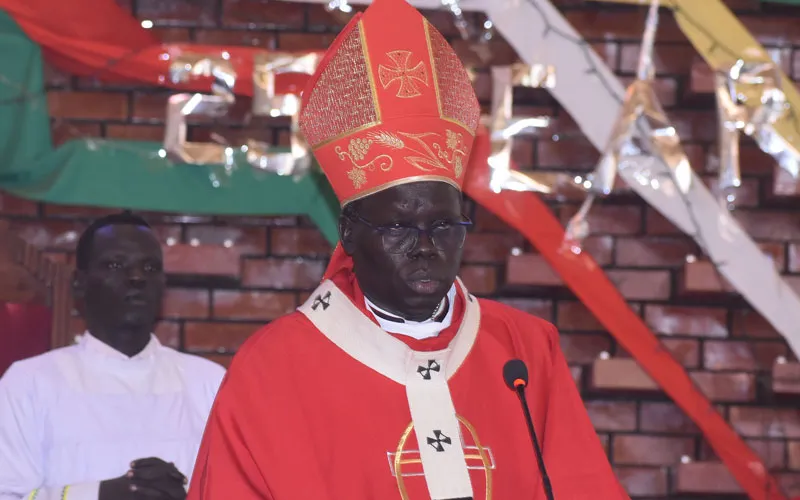Archbishop Ameyu went on to say that dialogue that the former Pontiff advocated for was the one “from the point of strength that all of us who believe in God should believe in the truth that God has given us.”
“Benedict XVI was a person given to us by God to help us understand the truth about God,” the 58-year-old South Sudanese Archbishop further said, adding that the late Pope emeritus “advocated for the understanding of the cultures all over the world and defended the poor.”
Archbishop Ameyu also eulogized the former Pope as one who contributed to better human life. “God has given us this privilege of knowing and loving him and walking with him on our path of human life. In knowing him we have hopefully become better,” he said during his January 3 homily.
“We have catalog memories and experiences of this great man which are gifts from God to the Church,” the South Sudanese Archbishop further said, adding, “Benedict XVI was always a man who in a way represented the love of God, and had special love for Africa.”
The late former Pope, Archbishop Ameyu said, “always loved his God even in difficulties, affliction and trial.”
“As we mourn this great man, let’s put ourselves in the mood of prayer to recommend his soul to God,” the Local Ordinary of Juba Archdiocese said.
Born Joseph Aloisius Ratzinger, the late former Pontiff was elected to the papacy in April 2005, taking the name Benedict XVI.
This election came after decades of service to the Catholic Church as a theologian, Prefect for the Congregation for the Doctrine of the Faith, Cardinal, and one of the closest collaborators of St. John Paul II, whom he succeeded as Pope.
In February 2013, the then 85-year-old Benedict XVI shocked the world with a Latin-language announcement of his retirement, becoming the first Pope in 600 years to do so. He cited his advanced age and his lack of strength as unsuitable to the exercise of his office.
Widely recognized as one of the Catholic Church's top theologians, the pontificate of Benedict XVI was reportedly marked by a profound understanding of the challenges to the Church in the face of growing ideological aggression, not least from an increasingly secular Western mindset, both within and outside the Church.








